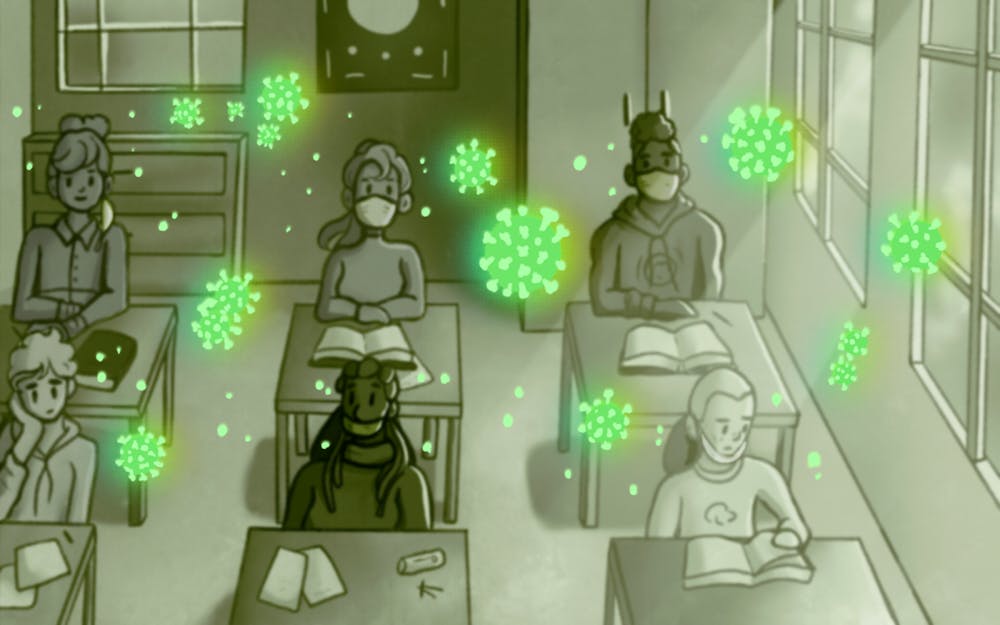Three days into the first week of this semester, I found out I had been exposed to someone who tested positive for COVID-19. Though I am vaccinated, I was in close, unmasked contact with this person for hours at a time. So I decided to stay home.
I didn’t want to miss class, but more than that, I didn’t want to attend class and find out later that I exposed others to COVID-19. My professors were on board with that. Honestly, they all seemed grateful I was taking these possibly extra-cautionary steps to ensure everyone’s safety.
However, they were upset to hear I’d have to miss important lessons. I was too.
As the spread of the Omicron variant of COVID-19 is on the rise, going to in-person classes while having to wait for test results and being anxious about public interactions only hinders our learning and valuable time on campus.
Even though my feelings about COVID-19 safety measures are strong, I want to make the disclaimer that I don’t blame any specific person for getting infected. Most people who are vaccinated and boosted, masked up and generally responsible aren’t at fault for community spread or for unknowingly carrying the virus.
On Jan. 12 during an Ask Aaron webinar, IU Chief Health Officer Dr. Aaron Carroll said the classroom is one of the safest spaces for IU students, given the fact that most students are being social, studying in public spaces on campus or eating inside of restaurants.
While this isn’t a particularly hot take, I don’t think it takes the human complications of the spread of the virus into account. If students are spending time in places where people are generally unmasked, such as hanging out with friends, eating at a café or partying, they could easily get infected and bring COVID-19 into the classroom.
Though we’re all supposed to be wearing masks, we might touch our faces, our phones or various other surfaces that our germs are on. There seems to be no easy, anxiety-free way to be safe enough to feel like we won’t get infected, at least to me.
Beyond the physical health aspect, navigating a pandemic while being a student on the campus of a large university adds so much stress and worry to our already hectic minds.
Even though lockdown season now feels like a thing of the past, I think a lot of us, including myself, have been stuck in that isolated mindset. Sometimes it feels easier to be disconnected when we know all of the anxiety that being quarantined can bring.
To help people cope with pandemic anxiety, the Mayo Clinic made a few suggestions. The first on their list is to get enough sleep, which I only do on the weekends. The clinic also suggests eating healthy and choosing a “well-balanced diet.”
While these are reasonable points, they aren’t all feasible while being on a campus with tens of thousands of students. Balancing sleep and work is difficult as is. Eating healthy isn’t easy with long wait times and big crowds to worry about.
I’m not a doctor. I know there’s no solution that pleases every human. But all of these worries have put my education at the bottom of my list, when I know it should be one of my top priorities. After all, that’s why I’m on this campus.
I don’t want classes to go online. Living through that as a junior and senior in high school was hard enough. But I also don’t want to keep risking my safety as variants continue to emerge and the spread of COVID-19 continues.
Elizabeth Valadez (she/her) is a freshman studying English and political science. She is a member of Chi Alpha.






